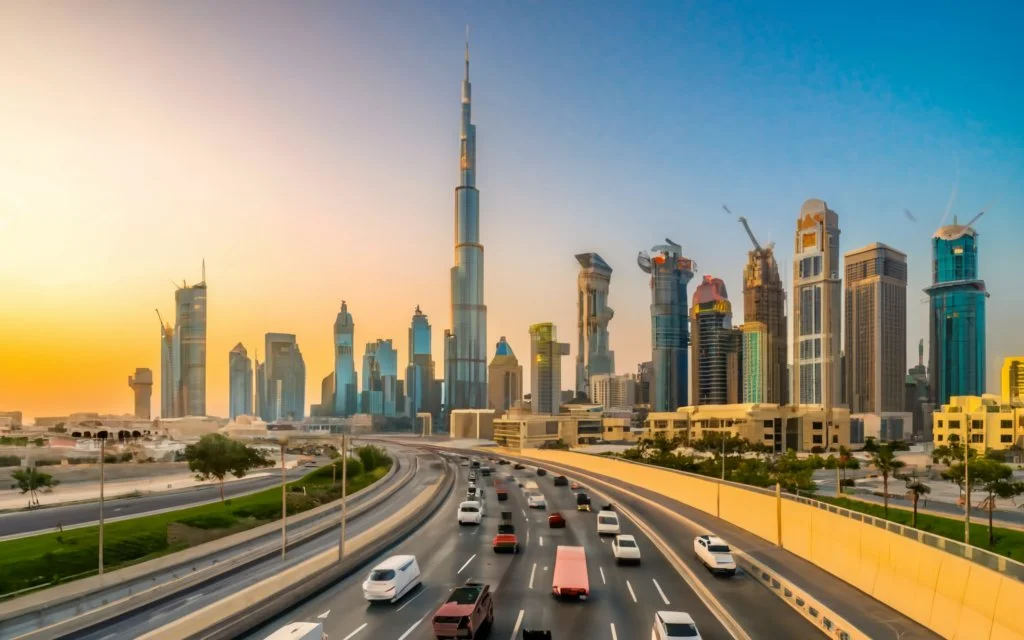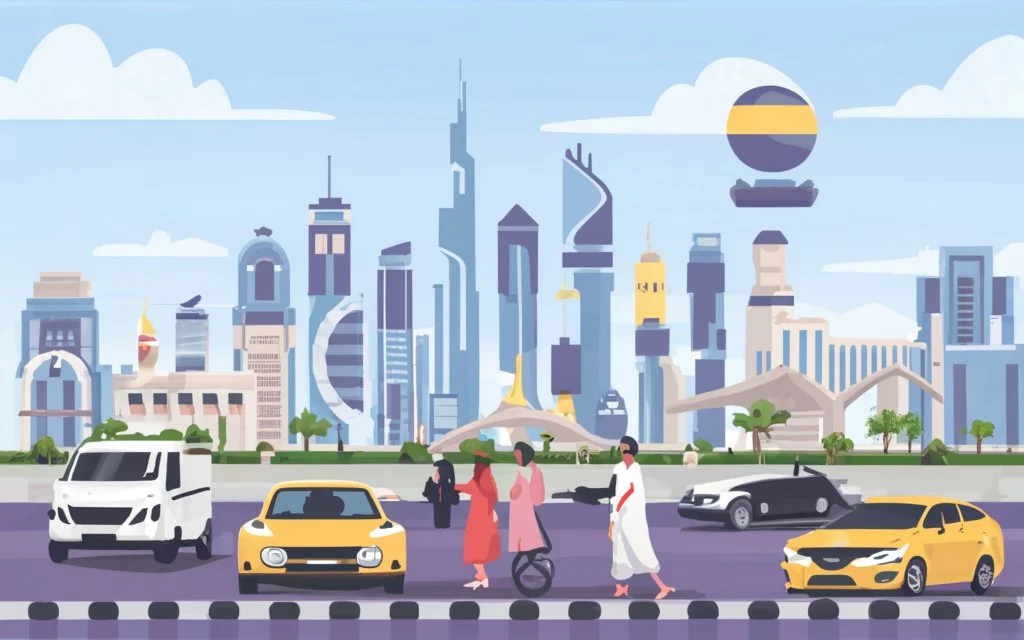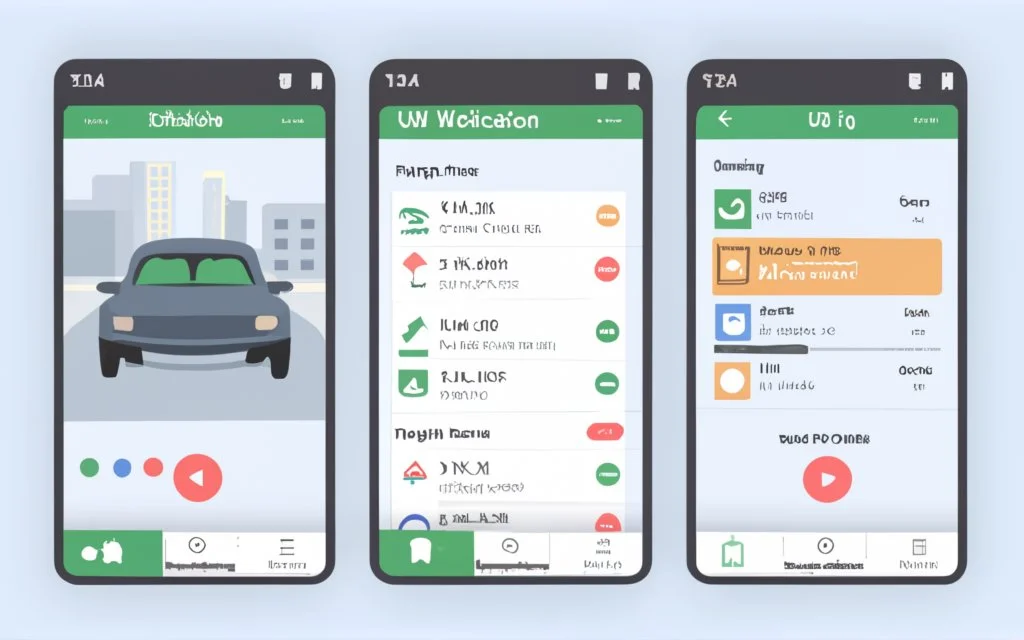The UAE is known for its modern infrastructure, bustling cities, and high-quality roads, which attract millions of drivers annually. However, with its advanced road networks comes the need for strict traffic regulations. Adhering to UAE traffic rules is crucial for ensuring road safety and avoiding hefty fines. Whether you’re a resident or a visitor, understanding these rules is essential to navigating the roads safely and legally.
In this article, we will explore the key UAE traffic rules and fines, the latest updates in 2024, and provide an easy-to-understand overview of driving regulations across major emirates like Dubai and Abu Dhabi. We’ll also touch upon road safety rules and how to access important resources, such as traffic rules in UAE PDFs.
What Are UAE Traffic Rules?
The traffic rules in the UAE are designed to promote safe driving, prevent accidents, and ensure the smooth flow of vehicles on the roads. The UAE government takes road safety seriously, which is reflected in their regularly updated regulations. These laws apply across the seven emirates, although there are slight variations in rules and fines between Dubai and Abu Dhabi.
For instance, the Dubai traffic rules and regulations are often stricter due to the city’s dense population and high tourist influx. On the other hand, Abu Dhabi driving rules have their specific nuances, especially when it comes to penalties for traffic violations.
Whether you are driving in Dubai, Abu Dhabi, or anywhere else in the UAE, compliance with traffic laws is non-negotiable. Violating these rules can result in significant fines, black points on your driving license, or even imprisonment in severe cases.
Key Traffic Rules in the UAE
Here are some of the most important driving rules in the UAE:
- Seatbelt Laws: All passengers in a vehicle, including those in the back seat, must wear seatbelts. Failure to comply can result in a fine of AED 400 per person not wearing a seatbelt.
- Speed Limits: Each road has a designated speed limit, clearly displayed on signs. Exceeding the speed limit by even 20 km/h can incur hefty fines ranging from AED 300 to AED 3,000, depending on how much over the limit you are driving.
- Drinking and Driving: The UAE has a zero-tolerance policy for driving under the influence of alcohol. If caught, violators face heavy fines, imprisonment, and possible deportation for expats.
- Mobile Phone Usage: Using a mobile phone while driving is prohibited unless you have a hands-free device. The fine for this violation is AED 800 and four black points.
- Lane Discipline: Drivers are expected to stick to their lanes and use indicators when switching lanes. Reckless lane changes can lead to fines of AED 400 or more.
- Pedestrian Crossings: Drivers must give way to pedestrians at designated crossings. Failure to do so can result in fines of AED 500.
- Parking Violations: Parking in restricted zones or unauthorized areas can lead to fines. For example, parking in spaces reserved for people with disabilities without a valid permit incurs a fine of AED 1,000.
Read More:How Can I Remove Traffic Fine in UAE
New Traffic Rules in the UAE 2024
As of 2024, the UAE has introduced new traffic rules aimed at enhancing road safety and reducing accidents. These regulations reflect the growing emphasis on safe driving behavior and increased penalties for violations. Key updates include:
- Increased fines for reckless driving: The authorities have doubled the fines for speeding, aggressive driving, and other reckless behaviors. Fines can now reach AED 50,000 for severe offenses, alongside potential jail time.
- Stricter regulations on heavy vehicles: Truck drivers must follow new rules regarding weight limits and road timings. Heavy vehicles that exceed load limits or drive during restricted hours face heavy penalties.
- Introduction of smart radars: The latest radars can detect multiple violations, including speeding, tailgating, and driving in restricted lanes. These radars are now in operation across the UAE’s major highways.
Traffic Rules and Fines in Dubai
Dubai, being a major metropolis, enforces some of the strictest traffic rules in the UAE. The Dubai government is known for its use of advanced technology in monitoring traffic violations, such as the deployment of AI-powered radars.
Some notable Dubai traffic rules and fines include:
- Speeding: Depending on the severity, speeding violations can result in fines between AED 600 to AED 3,000, along with potential vehicle impoundment.
- Running a Red Light: This serious offense can cost you AED 1,000, 12 black points, and impoundment of your vehicle for 30 days.
- Overcrowded Vehicles: Exceeding the passenger limit in a vehicle can incur a fine of AED 400.
Traffic Rules in Abu Dhabi
Abu Dhabi also has its own set of regulations tailored to the emirate’s unique traffic patterns. The Abu Dhabi traffic rules and regulations focus on promoting road safety through awareness campaigns and harsh penalties for dangerous driving.
Some important rules include:
- Tailgating: Following another vehicle too closely is a common problem on Abu Dhabi highways. Offenders face a fine of AED 400 and four black points.
- Child Safety: Children under the age of 10 are not allowed to sit in the front seat. Violating this rule leads to a fine of AED 400.
- Seatbelts: As in Dubai, wearing seatbelts is mandatory for all passengers. Failing to comply results in a fine of AED 400.
Accessing UAE Traffic Rules and Fines
If you’re looking to access a comprehensive list of UAE traffic rules and fines, the traffic rules in UAE PDF documents are available online through various official channels. These PDFs offer detailed information about the rules, fines, and black points system in different emirates. Similarly, Dubai traffic rules and regulations PDF and traffic rules in Dubai PDF can be downloaded from the Dubai Roads and Transport Authority (RTA) website.
For the latest updates, including new traffic rules in Dubai or Abu Dhabi, you can also check official government portals. Always stay informed, as traffic laws are subject to change.
Road Safety Rules in the UAE
The UAE government prioritizes road safety, with strict laws and heavy fines aimed at reducing accidents. In addition to penalties for speeding and reckless driving, authorities encourage defensive driving and compliance with road signals.
The emphasis on road safety rules in the UAE is evident from the extensive awareness campaigns conducted by the police. Drivers are educated on the importance of wearing seatbelts, following speed limits, and maintaining proper vehicle conditions.
Conclusion: Stay Safe, Stay Informed
Driving in the UAE comes with a responsibility to follow strict traffic rules designed to protect everyone on the road. Whether you’re in Dubai, Abu Dhabi, or elsewhere in the UAE, being aware of the driving rules and staying updated with the latest traffic regulations is crucial. Familiarize yourself with resources such as traffic rules in UAE PDFs and always drive cautiously to avoid fines, black points, or more serious consequences.
By respecting these laws, drivers can contribute to safer roads and enjoy a smoother driving experience in one of the world’s most developed nations.
FAQ:
What are the rules for driving in the UAE?
In the UAE, drivers must follow strict traffic rules to ensure road safety. This includes wearing seatbelts, adhering to speed limits, and never using mobile phones without a hands-free device. The UAE enforces zero tolerance for drunk driving, and lane discipline is crucial. Violations can lead to fines, black points, or even imprisonment.
What is the traffic code of the UAE?
The UAE traffic code governs all road users. It includes rules about speeding, seatbelt use, pedestrian safety, and penalties for violations. Drivers must follow these regulations to avoid fines and ensure a safe driving environment.
What are the lane rules in the UAE?
Lane discipline is vital in the UAE. Drivers must stay in their designated lane and use indicators when changing lanes. Reckless lane changes can result in fines and black points. Overtaking should only be done safely, and tailgating is strictly prohibited.



